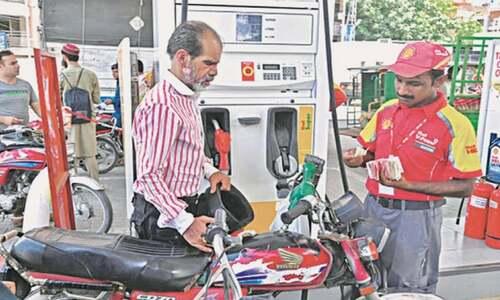PARIS: Aid agencies have found themselves frustrated and increasingly bitter as the Syrian conflict enters a fifth, blood-soaked year and those in need of help become ever-harder to reach.
“By comparison, Somalia and Afghanistan seem simple,” said Jean-Herve Bradol of the Centre For Reflection on Humanitarian Knowledge and Action, a French think tank linked to Doctors Without Borders.
“Impartial humanitarian aid in a time of war is never easy but in Syria, the complexity and danger are at the highest possible level,” he said.
A coalition of 21 aid and rights groups this week estimated there were 4.8 million Syrians living in areas deemed “hard to reach” by the UN in 2014, almost double the 2.5 million the year before.
Their report, called “Failing Syria”, heavily criticised the UN Security Council for failing to implement its resolutions on protecting civilians.
“There is enormous frustration over the fact that what is deployed is nowhere near what is needed. It’s an unprecedented humanitarian crisis,” said Dounia Dekhili, of Doctors Without Borders (MSF).
Despite its sizeable resources, MSF has been forced to rein in its efforts in Syria since it has no authorisation to work in government-controlled zones and no viable go-betweens with the ever-changing faces of the rebel opposition.
“It’s a conflict in which health workers are hunted down by the regime in Damascus because we treat members of the opposition, and by the Islamic State because we are infidels,” added Bradol.
Even for MSF — used to working in some of the deadliest places on Earth — Syria has become too dangerous.
A fragile agreement to let it work in self-styled Islamic State areas collapsed in January 2014 when five of its staff were kidnapped for five months.
Like most NGOs, MSF now employs almost entirely local staff to keep its six medical buildings in the country running.
‘We feel a little alone’
One of the few NGOs authorised to work by the Syrian government is Islamic Relief France, though it has faced strict conditions including a ban on working with local groups, said Stephane Lobjois, its head of emergencies.
But finding qualified staff when so many millions have fled the country is a perennial problem for all NGOs, especially considering the risks that come with working for a foreign organisation, said Lea Gibert, head of Syria operations for Doctors of the World.
She hoped the anniversary of the conflict this week would shine a little light on the humanitarian catastrophe but added “we get the impression that it is being totally forgotten”. “We feel a little alone,” said Gibert.
The UN Security Council adopted three resolutions last year urging armed actors in Syria to protect non-combatants and to secure greater access for humanitarian aid.
“However, the resolutions, and the hope they provided, have rung hollow for Syrian civilians. They have been ignored or undermined by the parties to the conflict, other UN member states and even by members of the [Security Council] itself,” the report by the 21 humanitarian and rights agencies said.
Last year was the deadliest yet in the conflict, with at least 76,000 people killed out of a total of more than 210,000 since it began on March 15, 2011 with peaceful pro-democracy demonstrations.
Since then, 11.4 million Syrians have fled their homes and nearly four million have left the country in what the UN has called the worst refugee crisis in 20 years.
Published in Dawn March 15th , 2015
On a mobile phone? Get the Dawn Mobile App: Apple Store | Google Play














































Dear visitor, the comments section is undergoing an overhaul and will return soon.